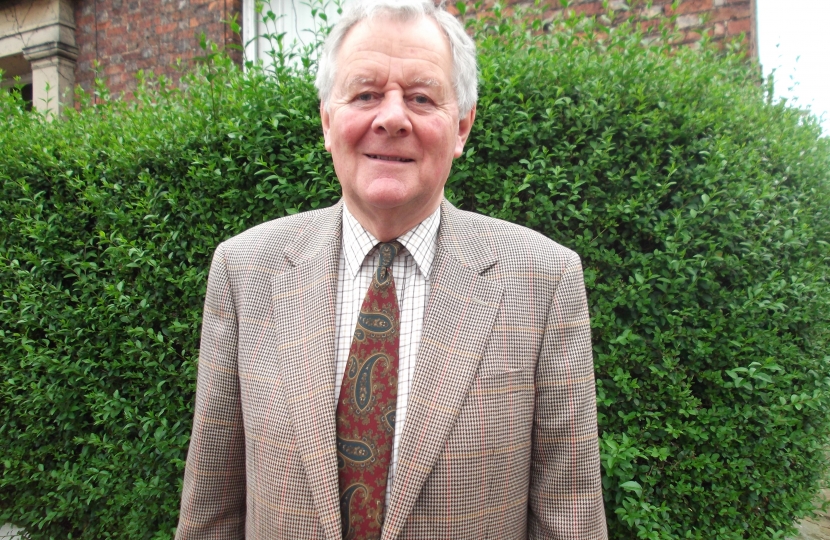
With a great deal of experience of the Criminal Justice System, Richard is well placed to understand the role of PCC and what will be required of him should he succeed, he is currently
Chair of Cumbria Probation Trust 2008-present - Cumbria Probation Board since 2004
and has been
Headmaster for 22 years - Justice of the Peace for 33 years - Lay Member Tribunal of Service for 10 years - Churchwarden at St. Mary’s Church Staveley in Cartmel
The Minister for Policing & Justice, Nick Herbert MP, recently referred to the immense influence that the newly elected Police & Crime Commissioners will have on government policy given their democratic mandate.
The National Debate
It is essential that the PCC in Cumbria can make an informed and authoritative contribution to the national debate that is necessary. Let us reflect on the title - Police & Crime Commissioner- this is much more than simply holding the Police force to account. It embraces most, though not all, aspects of the Criminal Justice System.
Given my broad experience of the Criminal Justice System, the three main areas where I believe I can make a contribution are:
1. The Need for a more coordinated Criminal Justice System across the Country
2. The need to increase public confidence in, and knowledge of, the Criminal Justice System.
3. The need to continue the debate about what works - prison, community sentences, and the right balance between punishment and rehabilitation in harness with public expectation.
If elected as Cumbrian PCC I will:
1. Establish an Executive Committee consisting of the Chief Constable, Chief Executive and Treasurer to determine policy and strategy that is deliverable within existing budgetary constraints. Central to this would be Hot Spot Policing - in which a comprehensive crime mapping exercise will demonstrate where and when criminal activity takes place. This will facilitate the deployment of effective resources to the areas of the County where they are most needed, avoid wasting time and effort and develop the highest level of visibility and response possible.
2. Establish and Office of Public Engagement which will be proactive in facilitating public attitudes, complaints and suggestions by accessing all media outlets, staging public events and advising the Executive Committee on public reaction to policing and crime prevention matters.
3. Establish an Office of Victim Support, which will be responsible for distributing the recently announced government finance for victims as well as coordinating practical help for those whose lives have been affected by crime. This will be done by working with existing voluntary and public sector organisations. No Crime ever has only one victim.
4. Promote Restorative Justice in response to the current government initiative as a means of reducing reoffending and boosting victims' confidence in the system. This will be done by commissioning work from the public, private, voluntary and faith sectors and will have 4 main target areas in the first instance.
5. Anti Social Behaviour Statistics show this to be the greatest area of public concern.
6. Veterans Veterans are the largest single occupational group currently in our prisons. They deserve better.
7. Youth Justice There needs to be greater overall coordination in the handling of youth crime.
8. Rural Crime In Cumbria we have a particular need to address this issue by harnessing local resources.
· Promote a Pan-Cumbrian vision and level of activity for dealing with crime across the County by embracing the good work and activity currently being promoted by Local Authorities, Safer Cumbria, Community Safety partnerships, and the new Health and Well Being boards, amongst others. This will include a cooperative approach with the statutory agencies such as the Police, the Probation Service, Youth Offending Service, the Health Authorities and Education Services.
To Conclude
It is worth reflecting on the recent HMIC Inspection- which showed that in the Cumbria Police Authority Area there had already been significant savings whilst retaining high levels of public satisfaction and a lower crime rate. However there is still a need to find a further £4m of savings. This represents a significant challenge but it is my view that the only prospect of success in achieving these savings as well as maintaining the reduction in overall crime is to adopt a positive response. This is the guiding principle behind these proposals linked, of course, with the overriding wish to protect the people of Cumbria.
